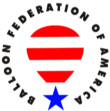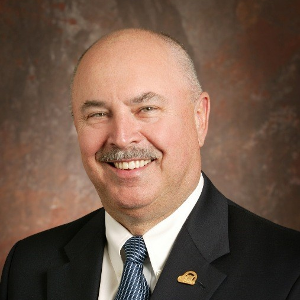
The BFA has been continuing to work with FAA to provide better explanations for some of the information contained in the final rule for the second class medical for commercial balloon pilots. Our concern was the footnote contained at the bottom of page 15 and is listed as footnote 10. I have printed this footnote for you in full here. It states:
“The FAA notes that compensation for display of an aircraft from the ground does not constitute a commercial operation. See Legal Interpretation to Karen Torres (March 17, 2011). A balloon operator may be compensated for attending an event and displaying a balloon, including inflating the envelope while the aircraft remains on the ground. An operation is generally considered a commercial operation when the operator is compensated to fly the aircraft, with or without passengers. Further, a balloon pilot may exercise private pilot privileges to fly the balloon at an event he or she received compensation for attending, provided the compensation was not provided with the expectation that the operator fly the balloon during the event. See Legal Interpretation to Tucker Comstock (Sept. 8, 1977); see also Legal Interpretation to Gary Bruce Eaton (Dec. 7, 2012).”
You can read the entire rule HERE.
In the BFA’s comments to the NPRM for this rule, we strongly opposed the requirement for pilots of both commercial contract balloons displaying a logo or other advertising and special shape balloons, to hold the medical certificate. This comment by BFA was based on the lack of risk to the flying public, posed by the operation of these types of balloons. While the FAA upheld the need for a commercial pilot to hold the medical certificate while acting under a paid contract for flying balloons bearing company names or logos, the language of footnote 10 makes the distinction between pilots expected to fly and those that are not.
The explanation for this paragraph needs to be further separated into several parts for proper clarification. Most of what is contained here relates to festival activities, but not always. Both commercial advertising balloons and special shape aircraft may be paid a fee for attending an event, or in some cases, to simply display the balloon at a location. This happens quite often with the RE/MAX fleet as most of you know. The key to understanding the first part of this footnote lies in the invitation and/or agreement with the balloon operator. The balloon contracted to attend the event may not be required to fly and it must be clearly stated that attendance is not contingent of flying. So a static display of either a corporate balloon or special shape balloon without the expectation for flight is not considered a commercial operation for which a medical will be required.
The second part of footnote 10 gets a little more complex. It states that the pilot who has been compensated to attend the festival may also exercise their private pilot privileges to fly as long as there was no expectation to fly. What this means is that the same pilot of a commercial advertising balloon or special shape may elect to fly should they desire, as long as there is no expectation from the organizer or hiring company to fly. One caveat here is that these balloons may not carry passengers assigned to the balloon by the organizer or compensating company. Example: You are compensated by a festival to ground display your special shape only. You may do so without the medical. You may even decide to fly if you wish, again without the medical. Since your compensation as a shape operator is likely above and beyond what is given to all other participants, taking any provided passengers would be considered operating an aircraft that is carrying passengers for hire and a medical would be required.
Confused yet? It’s pretty simple. If an organizer is contracting a bunch of balloons to display in the park at a concert and there is no intent for flight, any pilot may be paid or compensated to attend and display their balloon (with no intent for flight) and no medical is required. This is a great benefit for special shape balloons in particular.
Remember that the 2018 update to the FSIMS (8900 guidance) still is in effect regarding compensation (Article K). The key component is whether the pilot is required to fly to receive the benefits provided (lodging, meals, gifts, prize money). If no passengers have paid for the ride except the sponsor who may have donated resources in order for the event to take place, and the pilot receives no additional compensation for taking the passengers, then the pilot is not operating an aircraft that is carrying passengers for hire. You can read the balloon-related section of FSIMS HERE.
The is another question that I have been asked that is now answered by referencing our brothers and sister in the powered aircraft world and I thought it was important to this discussion as well. The scenario is this: If I own an auto parts store and I also own a balloon with my store logo on it, am I required to be a commercial pilot and hold a second class medical? The simple answer is “no” on both issues. No commercial certificate or medical required. If a person is flying a balloon that has advertising on it and their duties to fly the balloon are duties that fall under their responsibility, then flying the balloon is considered commensurate with their duties as an employee of the company. In the above case, you own the company. You have ownership duties and flying the balloon falls into your responsibilities. This would also apply to a person that is an employee of the company. There is no special compensation to fly the balloon, but their salary covers all of his or her duties to the company, which may include piloting the company aircraft. This is not considered compensation for flying.
This news has great benefits for our industry. The FAA included this footnote to clarify the full meaning of the rule of compensation or hire. We did not get everything that we requested in our comments to the NPRM, but this consideration given toward certain types of balloon operations that pose little or no risk to the flying public, will ease the pain a little for this segment of our ballooning operators.
Stay safe out there.
Sincerely,

Pat Cannon, BFA President
LINKS:
FAA Med Express: https://medxpress.faa.gov/medxpress/
FAA Final Rule: https://tinyurl.com/faasecondclassfinalrule
FAA Allowed Medications: https://www.aviationmedicine.com/medication-database/
AOPA Guide to Medical Certification: https://www.aopa.org/training-and-safety/students/presolo/special/pilots-guide-to-medical-certification
FSIMS - Balloon Section Only: FSIMS Balloon Section
FSIMS - Full Version: FSIMS Full
Note: You received this message because you are registered as a user of the BFA website. If you do not wish to continue to receive notices, please contact the BFA office at (515) 961-8809 or you can {unsubscribe}unsubscribe from the emailing list.{/unsubscribe})




